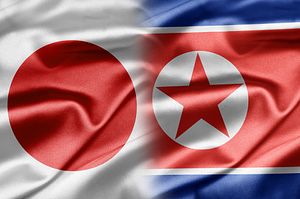After nearly two months, reports are beginning to emerge about the likelihood and possible date of North Korea’s report on the whereabouts of Japan’s abducted citizens. Meetings and dialogue between the two sides have taken place over the last few weeks, indicating that an initial report in the next few weeks is to be expected. A conservative estimate for the report would be the third week of September, or perhaps later, as negotiations seem to have stuck on North Korea’s quid pro quo terms for the removal of further sanctions.
Japan looks to be taking advantage of all means at its disposal to approach Pyongyang on this issue. Current Diet member and former professional wrestler Kanji “Antonio” Inoki was in Pyongyang last weekend promoting an international wrestling exhibition. Inoki has a long history of encouraging cultural exchange through sporting events, particularly with North Korea, and over the years has developed a relationship with some of Pyongyang’s top-tier leadership. He reportedly met with ruler Kim Jong-un’s uncle Jang Sung-taek last year, before Jang was executed by Kim in a power struggle. Inoki’s influence does not appear to have suffered, however, as he met with North Korea’s ceremonial head of state Kim Yong-nam, who also presides over the Supreme People’s Assembly. Inoki expressed his hope “that the door of Japan and (North) Korea that has been shut for a long time will be opened.”
A source close to the ongoing bilateral negotiations told the Kyodo News on Tuesday that Japan’s director general of the Foreign Ministry’s Asian and Oceanian Affairs Bureau Junichi Ihara met with a senior official in North Korea’s Ministry of State Security on August 21 in Kuala Lumpur in secret to discuss the abductee issue. Ihara was sent to further dialogue in Kuala Lumpur after “limitations” were encountered in discussions in Beijing. The two sides met in an attempt to iron out final details over the release of the report, but were unable to reach an agreement over the exact date of the release or what specific incentives Tokyo might offer. Japan went into the secret meeting looking for assurances on the progress of the investigation, having already loosened some unilateral sanctions after an initial agreement was reached in early July to conduct the investigation. During the negotiations in Malaysia’s capital, Pyongyang reportedly “did not provide any new information about abductees and called for Tokyo to take steps such as lifting the ban preventing the Mangyongbong-92 passenger-cargo ferry from entering Japanese ports in exchange for the report.”
After the secret meeting in Kuala Lumpur (at least secret until it was leaked to the media), the minister in charge of the abduction issue, Keiji Furuya, told the press on Monday that “the Japanese government will not accept a half-baked response” from North Korea when the report is released, and that “the government will seek to bring all abductees back regardless of whether they have been officially recognized as abducted.” The Japanese government has officially recognized 17 abductees, 12 of which the North Korean government has still not accounted for.
However, on Tuesday Inoki returned from his trip to North Korea and claimed that Pyongyang is “pretty much ready” to announce the results of its investigation, and that “They are well aware of the fact that Japan is placing the abduction issue as its top policy priority.” Upon his return it was reported that Inoki had also met with Kang Sok-ju, a top North Korean diplomat who will leave later this week on a tour of Europe to improve upon Pyongyang’s current deep international isolation.
The fact that North Korea is negotiating so hard up front for Japan to solidify which unilateral sanctions it will remove before saying when Pyongyang will release its report could indicate two things: One is that due to its current prolonged isolation Pyongyang is in urgent need of even incremental sanctions relief, which the Mangyongbong-92 ferry represents. The other is that the report will indeed indicate the fate of at least some of the remaining 12 officially recognized abductees, and possibly all of them. Waffling on the report’s release date is different from stating that the investigation has stalled or failed. As it stands now North Korea will most likely release the report, probably by the end of the month. What it is looking for is an assurance that Tokyo will follow through on removing specific sanctions, while possibly still holding out hope for a high-level meeting of officials if the deal is found agreeable by both sides.

































